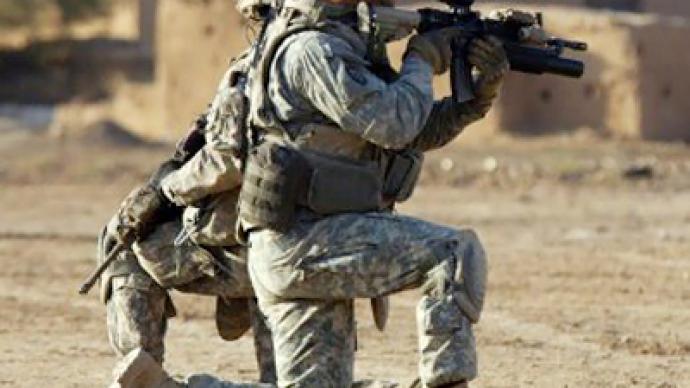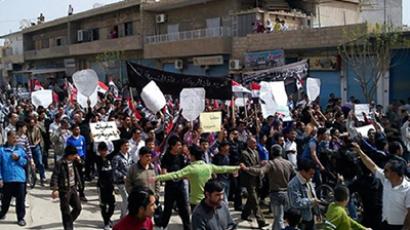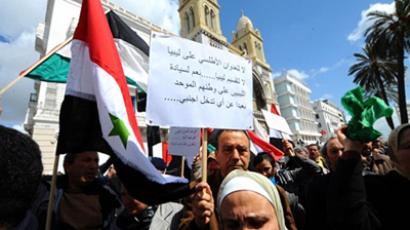US playing “D” card in Iraq to control Middle East

Publicly, the US’s backing of the pro-democracy uprisings in the Middle East often consists of a statement saying that people must determine their own future. Behind the scenes, though, it is widely acknowledged there is a lot more interference.
She is the country clothed in stars and stripes, accessorized with a Noble Peace Prize-winning president, pioneering the big “D” around the world. From Tunisia to Egypt, and then to Libya, Washington has said the will of the people must determine the fate of each country. However, in Iraq, where America claims to be transplanting democracy, a renewed sense of nationalism has united thousands against the US.“We are not supporting the democratic aspirations of people in Iraq, we have not been for eight years now,” said author of “War is a Lie” David Swanson. “The Iraqi people have wanted us out and we have stayed there for their own good. That is not democracy."Anger over US occupation dates back to the presidency of George W. Bush. Upon his exodus in 2008, Washington drafted an agreement promising all American troops would withdraw from Iraq by the end of this year. In today’s more peaceful Iraq, critics say the Pentagon is stepping up pressure to overstay its welcome, and cement its footprint.“The Pentagon is pushing for military presence after December 2011, around 22,000 troops, while the White House is talking about 10,000 troops,” said Columbia University research scholar Younes Abouyoub. “Actually, there is a tacit agreement that the US will stay in Iraq.”US troops remaining in Iraq number 47,000, where America’s embassy looms large, and control over Iraq’s oil sector is perceived to be the ultimate trophy prize in this eight-year war."At the very least, in order to deny China or any other perceived potential rival control of valuable resource, the idea ingrained in the thinking of these neo-con strategists in Washington DC, who are still very much in power, is that we must control the Middle East, because that is where the power comes from," David Swanson said. Experts say the US also wants to remain in the region to keep an eye on Syria, and contain Iran. “If the developments in Syria go to the extent that there is a fall of the regime, we do not know what kind of regime it will be. Maybe, it will be pro-US regime, maybe it will be something even worse,” Younes Abouyoub said. “You cannot withdraw at this juncture, you cannot leave a vacuum. Iran will just take advantage of it. That is from the perception of American interest.”Meanwhile, the perception of America's democracy remains somewhat distorted. Whether it has been used as a tool for achieving geopolitical gains and financial interests, or if Washington in the end will listen to the voice of the people remains to be seen.














